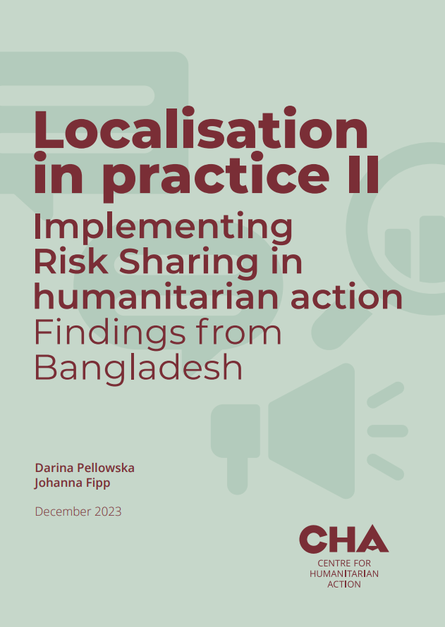
Risk in humanitarian action is multi-faceted, spanning safety and security, fiduciary and legal compliance issues, operational challenges, data and information security, and ethical and reputational threats. While an increasing number of humanitarian actors assess and manage these diverse risks systematically, such endeavours typically focus only on the risk thresholds of single entities. An individual risk management could detrimentally affect the risk landscape of the humanitarian delivery chain as a whole. To address this concern, the Risk Sharing Platform (2023) recently developed a framework, suggesting a more collective approach to risk in humanitarian action. However, the practical application of this framework presents challenges for many actors.
Although the concept of Risk Sharing itself is relatively new, there are already numerous humanitarian partnerships between intentional donors, international organisations such as UN agencies and international NGOs, and local organisations from crisis-affected communities that seek to address humanitarian projects more collaboratively. This paper gathers the experiences of humanitarian donors and international and local organisations involved in what they perceive as “equitable partnerships” in Bangladesh.
While full-fledged examples of implementing the Risk Sharing Framework were not shared, these stakeholders provided valuable insight on how to apply specific aspects of it. This paper outlines hands-on ideas for Risk Sharing activities, particularly in the areas of risk assessment and preventive risk mitigation. It underscores that successful implementation of such activities hinges on three premises: trust, mutuality and equity, and adequate resources. Governance and project management structures that flatten hierarchies among donors, international and local organisations, foster collective accountability, and encourage regular exchange and a learning culture are identified as essential for meeting these requirements. The paper argues that agile humanitarian action, characterised by flexibility and adaptability, can embody these qualities and, therefore, represents a valuable approach to addressing challenges in the comprehensive implementation of Risk Sharing.
